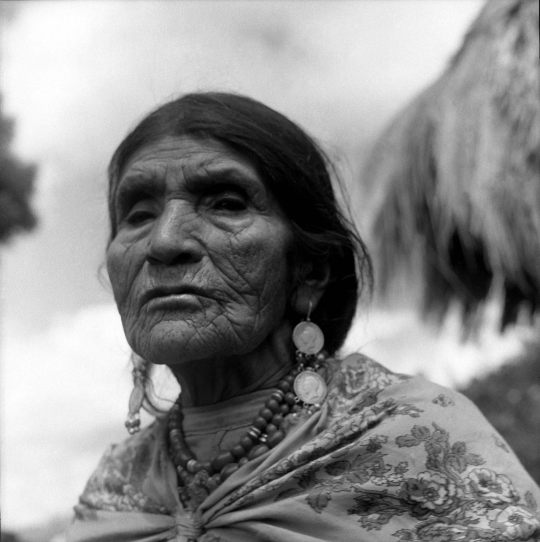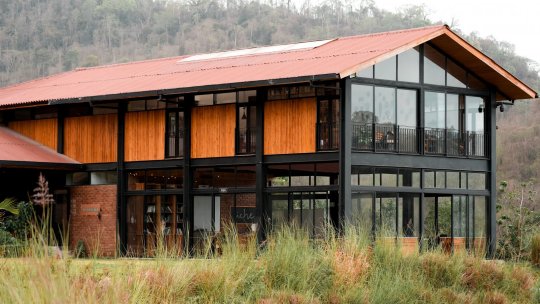#ecuadorian news
Text

[ 📹 Ecuadorian drug traffickers take prison guards and police officers hostage and assassinate them on camera in a series of coordinated attacks across the South American country.]
🇪🇨 💀 🔞 🚨
ECUADOR ERUPTS INTO VIOLENCE AND CHAOS AFTER CARTELS DECARE "WAR ON THE STATE", ARMED FORCES OF ECUADOR DEPLOY TROOPS
A State of Emergency was declared by the Ecuadorian President after a series of terrorist attacks, prison riots and kidnappings exploded into a day of chaos, after drug cartels declared "War on the State".
After a series of explosions, abductions of police officers, prison riots, the escape of a notorious gang leader from a high-security prison, and the storming of a live-tv broadcast of channel TC by gang members waving firearms and accosting television crews, the President of Ecuador declared a State of Emergency Wednesday, determining 22 of the nation's most prominent gangs to be terrorist organizations, announcing that the South American country was experiencing "internal armed conflict," and issueing a decree that included a curfew, which the gangs immediately violated.
Videos showing prison guards being subdued and killed have gone viral, while the search for "The Cheneros" gang leader, Jose Macias (aka Fito), goes on as the elusive criminal with ties to Mexican cartels evades capture.
Meanwhile, an explosive device was detonated in the vicinity of the residence of Ecuadorian Supreme Court President, Ivan Saquicela, in the Ecuadorian capital, Quito, and several police officers have been kidnapped across the country.
Riots also broke out in several cities, with scenes of running crowds escaping explosions and gunfire, cars burning in the streets, the looting of warehouses, and the destruction of public infrastructure.
Several videos have also gone viral showing the assassination of police officers and prison guards.
The rioting Ecuadorian criminal organizations killed two police officers, Corporals Alex Taday and Luis Guanotuña in Nobol, located in the Guayas province.
In response to the violence, the Armed Forces of Ecuador have been mobilized, with troops deploying in several cities across the country in areas where riots and looting have broken out over the last day.
Reports from Ecuadorian Forces say more than 70 people tied to the violence and others with links to criminal enterprises have been detained, while three police officers being held hostage have been released.
The Armed Forces of Ecuador also added that 17 escaped prisoners were re-captured, adding that they had also seized weapons, ammunition and explosives from the armed groups.
Meanwhile, the Ecuadorian legislature announced blanket pardons and amnesties related to operations targeting the drug traffickers.
The President's decree determined the following organizations to be "terrorist organizations and belligerent non-state actors":
Aguilas, AguilasKiller, Ak47, Caballeros Oscuros, ChoneKiller, Choneros, Corvicheros, Cuartel de las Feas, Cubanos, Fatales, Ganster, Kater Piler, Lagartos, Latin Kings, Los Lobos, Los p.27, Los Tiburones, Mafia 18, Mafia Trebol, Patrones, R7 and Tiguerones.
#LinkToMoreVideos
#source1
#source2
#source3
#source4
#videosource
@WorkerSolidarityNews
#ecuador#ecuador news#drug traffickers#ecuadorian gangs#south america#south american news#ecuadorian news#riots in ecuador#attacks in ecuador#terrorist attacks#politics#news#geopolitics#world news#global news#international news#war news#war#breaking news#current events#ecuadorian politics#ecuador trafficking#cartels#cartel#south american cartels#ecuadorian cartels#ecuadorian cartel#mexican cartel#drug trafficking#riots
11 notes
·
View notes
Text

Daniel Die by Roberto Pacurucu, st. Albert Blanchon, mua Ale La Torre, Jan. 2023
5 notes
·
View notes
Photo

Oswaldo Guayasamín
Red Flowers on Gold Ground
Signed 'GUAYASAMIN' (lower right).
Oil on canvas.
373⁄8 x 313⁄8 in. (95 x 79.7 cm.).
Painted in 1980.
#Oswaldo Guayasamín#Oswaldo Guayasamín Red Flowers on Gold Ground 1980#ecuadorian artist#painter#painting#oil on canvas#art#artist#art work#art world#art news#flowers
33 notes
·
View notes
Text
744. E.P. Carrillo Elite New Wave Connecticut Reserva Robusto
Bought from The Oak Lounge Tallinn, Estonia.Location: This review was made indoors in a cigar lounge.Information:Wrapper: Ecuadorian Connecticut ShadeBinder: Connecticut Broadleaf Filler: Dominican Republic & Nicaragua Origin: Dominican Republic Factory: EPC Cigars (Dominican Republic)Box: Sold in 20 count boxes. Release: 2014Availability: Regular Production Size: 5×50, Robusto Wrapper: Almond…

View On WordPress
#Connecticut#Connecticut Broadleaf#Dominican Republic#E.P. Carrillo#Ecuadorian Connecticut Shade#New Wave Reserva#Nicaragua#Robusto
0 notes
Text
Allergy Alert
https://www.food.gov.uk/news-alerts/alert/fsa-aa-21-2023
#https://www.food.gov.uk/news-alerts/alert/fsa-aa-21-2023#lidl#lidlgb#allergyalert#allergy#allergies#allergic#allergen#allergens#milk#milkallergy#milkallergies#dairy#dairyallergy#dairyallergies#deluxeecuadoriansingleorigineasteregg#deluxe#ecuadorian#singleorigin#easter#easteregg#chocolate#milkchocolate#anaphylaxis#allergyawareness#anaphylaxisawareness#anaphylacticshock#share#produtrecall#recall
0 notes
Text
Big Cock
phim sex không che
#In terms of penis size#a study found that Haitian men are the fifth best equipped in the world. The penis of Haitians#which can enlarge to an average length of 6.30 inches when erect#is the fifth-largest in the world#according to a study whose findings have been covered by publications like The Sun and New York Post. The study was conducted by the online#who were ranked eleventh#and the Americans (5.35)#who were ranked 59th#from their perch atop the World Top 5. The top spot goes to Ecuador by a wide margin. According to researchers#Ecuadorians have the largest penis in the world#measuring up to 6.93 inches at its widest point. Cameroonians adhere to them (6.56). The smallest male sex organ is allegedly found in Camb#where a man's member would be 3.91 inches long. Dominicans don't seem to be taking part in this study#despite the fact that their Haitian neighbors performed better in a related study from 2012." Haitians have the fifth-largest peni in the w#per a 2001 study.#want to learn more about big cock sex visit https://javdm.org/
1 note
·
View note
Audio
“Rayela,” a 2022 single by Quito, Ecuador-based electronic post-punk band Postre
#electronic post punk#new wave#dark wave#post punk revival#Postre#Rayela#music#Ecuadorian#South American#first share#2022#2020s music#2020s post punk
0 notes
Text

New Music: FACEvsIT - 3FAC3S EP
Los Angeles based MC, FACEvsIT has been putting in work for many years with several singles, his previous projects as part of MMupCLAN, and collabs with BarlosGotBars and Smurf of Street Rebirth.
3FAC3S is Face’s debut EP, comprised of 9 tracks. This is a very personal project with topics that many of us can relate to. It features guest appearances from MMupCLAN affiliates SHNEAKY and BarlosGotBars.
3FAC3S was executive produced and engineered by EP The Dreamer. You can stream above as well as find on all major DSPs.
#hiphop#rap#west coast#LA Hiphop#Hiphop#Ecuadorian#Merchan Media Productions#Los Angeles#LA Underground#EP The Dreamer#MMupCLAN#BarlosGotBars#SHNEAKY#Street Rebirth#latin rap#new music#Bandcamp
1 note
·
View note
Text
Julian Assange can be extradited from UK to US, says UK home secretary
New Post has been published on https://www.timesofocean.com/julian-assange-can-be-extradited-from-uk-to-us-says-uk-home-secretary/
Julian Assange can be extradited from UK to US, says UK home secretary

London (The Times Groupe)- UK Home Secretary Priti Patel has approved Wikileaks founder Julian Assange’s extradition to the US.
The Home Office said Julian Assange has 14 days to appeal the decision.
As a result of the courts’ findings, extradition is not “incompatible with his human rights” and he will be treated fairly while in the US”.
Assange is being sought by American authorities over documents leaked in 2010 and 2011.
He has been incarcerated since he was removed from the Ecuadorian embassy in London in 2019 and arrested by British police after Ecuador revoked his asylum.
In response to the home secretary’s order, Wikileaks confirmed it would appeal her decision.
Stella Assange, Assange’s wife, said her husband had done “nothing wrong” and “he has not broken any law”.
“He’s a journalist and a publisher, and he’s being punished for what he does.”
While Assange was serving a jail sentence in the UK for breaching bail, the US justice department filed 17 charges against him for violating the Espionage Act – alleging that the Wikileaks material endangered lives.
Assange’s legal team argued that the classified documents published by Wikileaks, which related to the Iraq and Afghanistan wars, exposed US wrongdoing and were in the public interest.
In March, the Supreme Court ruled that Assange’s case raised no legal questions regarding assurances the US gave to the UK about how he would be treated.
Amnesty International said enabling the extradition would put him at “great risk and send a chilling message to journalists”.
“Diplomatic assurances provided by the US that Assange will not be kept in solitary confinement cannot be taken on face value given previous history”, general secretary Agnes Callamard said.
David Davis, a former government minister, said he didn’t believe Assange would get a fair trial in the US.
“This extradition treaty needs to be rewritten to give British and American citizens identical rights, unlike now”, he said.
According to a spokesperson for the Home Office, the Secretary of State “must sign” an extradition order if “there are no grounds to prevent it”.
“The UK courts have not found that it would be oppressive, unjust or an abuse of process to extradite Assange”, the Home Office added.
#Agnes Callamard#All news about Julian Assange#Anonymous Whistleblowing#Assange News#Assange's extradition to US#Breaking Stories#david davis#Ecuadorian embassy in London#Espionage Act#Inside Wikileaks#Latest Leaks#Latest News & Videos Photos about julian assange#Latest News on Wikileaks#Stella Assange#The Times Groupe#Times Of Ocean#Today Good News#UK home secretary Priti Patel#Unravel News#US Justice Department#Whistleblower#Whistleblower News Network#Wikileaks founder Julian Assange#World
0 notes
Text
Scientists have uncovered the Amazon’s earliest and largest example of farm-based city-like settlements high in the foothills of the Ecuadorian Andes.
The thousands of mounds, plazas, terraces, roads and agricultural fields — revealed for the first time in their fullest extent by airborne laser scans — necessitate a rethinking of just how complex ancient civilizations of the Amazon may have been, researchers report in the Jan. 12 Science.
Over the last decade or so, the use of light detection and ranging, or lidar, in archaeology has led to significant discoveries in tropical climates, where ancient settlements often lay obscured beneath dense jungle (SN: 12/4/23). In 2018, researchers released scans of remnants of Mayan settlements in Guatemala, followed by Olmec ruins in Mexico in 2021 and Casarabe sites in the Bolivian Amazon in 2022, all which have been revealed to be metropolitan-like settlements filled with complex infrastructure (SN: 9/27/18; SN: 1/6/23; SN: 5/25/22).
“It’s a gold rush scenario, especially for the Americas and the Amazon,” says Christopher Fisher, an archaeologist at Colorado State University in Fort Collins who has scanned sites throughout the Americas but was not involved in the new research. “Scientists are demonstrating conclusively that there were a lot more people in these areas, and that they significantly modified the landscape,” he says. “This is a paradigm shift in our thinking about how extensively people occupied these areas.”
[...]
Beneath the tree canopy was a massive network of roughly 6,000 mounds — once homes and community spaces — clustered into 15 settlements and connected by an intricate road system. The lidar data also revealed that the open spaces between settlements were in fact agricultural fields that had been drained to grow crops such as maize, beans, sweet potatoes and yucca. Within the settlements, the researchers found tiered gardens that would have kept some food closer at hand.
Put together, the results show that the valley wasn’t simply a series of small villages linked by roads, but “an entirely human-engineered landscape” built by skilled urban planners, Rostain says. Dating from several sites suggests the area was inhabited for roughly 2,000 years beginning around 500 B.C. by at least five different cultural groups. A next step will be to calculate how many people might have lived there.
187 notes
·
View notes
Text
GOOD NEWS:
Ecuadorians reject oil drilling in the Amazon, ending operations in a protected area
Ecuadorians voted against drilling for oil in a protected area of the Amazon, an important decision that will require the state oil company to end its operations in a region that’s home to isolated tribes and is a hotspot of biodiversity.
With over 90% of the ballots counted by early Monday, around six in 10 Ecuadorians rejected the oil exploration in Block 43, situated within Yasuni National Park. The referendum took place along with the presidential election, which will be decided in a runoff between leftist candidate Luisa González and right-wing contender Daniel Noboa. The country is experiencing political turmoil following the assassination of one of the candidates, Fernando Villavicencio.
Yasuni National Park is inhabited by the Tagaeri and Taromenani, who live in voluntary isolation, and other Indigenous groups. In 1989, it was designated, along with neighboring areas, a world biosphere reserve by the United Nations Educational, Scientific and Cultural Organization, also known as UNESCO. Encompassing a surface area of around 1 million hectares (2.5 million acres), the area boasts 610 species of birds, 139 species of amphibians and 121 species of reptiles. At least three species are endemic.
#south america#amazon#rain forest#science#animals#nature#yasuni#yasuni national park#ecuador#politics#oil
126 notes
·
View notes
Text

Two more B-1B bombers are deployed in Spain
The two recent B-1B bombers arrived in Morón for the latest deployment of the bomber task force in Europe.
Fernando Valduga By Fernando Valduga 30/03/2024 - 15:30in Military
Two U.S. Air Force B-1B Lancers during the 24-2 Bomber Task Force at Morón Air Base, Spain. (Photo: Scott Rathbone / Flickr).
Two U.S. Air Force B-1B Lancers bombers landed this week at Morón Air Base, Spain, totaling four USAF bombers at the station and completing the arrival of the Bomber Task Force (BTF) 24-2 on Tuesday (03/26).
The bombers transited to Europe passing through the Barents Sea. Throughout the missions, the four U.S. aircraft operated in international airspace and in full compliance with international law.

"Our ability to maneuver through the Arctic and position advanced strategic bombers in Europe is critical to ensuring our Allies and partners our commitment to regional security and stability," said General James Hecker, commander of the U.S. Air Forces in Europe - Africa Air Forces and NATO Allied Air Command. “The global security environment requires a forward-looking approach and we will continue to face this challenge through strategic planning and innovative operations,” he added.
This mission shows the continuous and dynamic operations of the US in the European and Arctic regions, adapting to the evolving security environment alongside the Allies and partners.
youtube
The BTF 24-2 is a routine part of the Large-Scale Global Exercise 2024, a generic term that incorporates dozens of separate U.S. military exercises and activities, under multiple combatant commands, that allow the U.S. Joint Force to train with Allies and partners and improve shared understanding, trust and interoperability in security challenges around the world.

The bombers and support personnel will carry out a series of missions to train alongside the Allies and partners during the deployment. Through these missions, USAFE-AFAFRICA allows the dynamic use of forces in the European theater, providing strategic predictability and guarantee to the Allies and partners, while contributing to deterrence, introducing greater operational unpredictability for potential opponents.
Tags: Military AviationB-1B LancerbombersBTFEjército del Aire/Spanish Air ForceUSAF - United States Air Force / U.S. Air Force
Sharing
tweet
Fernando Valduga
Fernando Valduga
Aviation photographer and pilot since 1992, he has participated in several events and air operations, such as Cruzex, AirVenture, Dayton Airshow and FIDAE. He has works published in specialized aviation magazines in Brazil and abroad. He uses Canon equipment during his photographic work in the world of aviation.
Related news
MILITARY
Ecuadorian Air Force receives a C-130 Hercules donated by the US
30/03/2024 - 14:00
MILITARY
Royal Dutch Air Force releases F-16 fighters from QRA task
30/03/2024 - 11:14
HELICOPTERS
North Macedonia formalizes order for Leonardo's helicopters
30/03/2024 - 10:38
Greek Air Force F-16 Block 30 fighters.
MILITARY
Greece is selling its oldest F-16 and Mirage 2000, but will any country buy them?
29/03/2024 - 20:00
MILITARY
Israel's new "Oron" reconnaissance aircraft is being used operationally in Gaza
29/03/2024 - 19:00
MILITARY
Actor Louis Gossett Jr., the eternal "Chappy" of the aviation film "Steel Eagle", dies
29/03/2024 - 15:54
I
25 notes
·
View notes
Text
my friend got back from a research trip to the galapagos recently (vampire flies) and he told me about how the ecuadorian government are witholding information about failed conservational efforts & new invasive species and i was like man you probably shouldnt be telling me this and he was like 😊yeah
21 notes
·
View notes
Photo

On this day, 26 October 1881, communist Indigenous activist Dolores Cacuango was born in Ecuador to a family of poor hacienda workers. She ran away from her family to Quito, where she got a job as a maid, learned Spanish and gradually became radicalised. Cacuango moved back to her home town to help organise with the working class to improve their conditions. A liberal revolution took place in 1916, which claimed it would give back land stolen from Indigenous peoples by big landowners and the Church. But the promises of the new government were largely unmet, and poor campesinos continued to be largely landless and ruthlessly exploited. Cacuango took part in the landless and Indigenous movements, and strongly advocated for women's rights and campaigned against the endemic sexual abuse of Indigenous women by hacienda bosses, becoming famed for her fiery speeches in Spanish and Kichwa. She took part in various uprisings and strikes, became a leading member of the Communist Party, co-founded the Indigenous Ecuadorian Federation in 1944 and lived until the age of 89. https://www.facebook.com/workingclasshistory/photos/a.296224173896073/2119380261580446/?type=3
364 notes
·
View notes
Text

Food as a catalyst to rebuild a community
Ecuador’s Project Iche houses a culinary school, restaurant and food lab that aims for social good
The initiative aims to impart ancient culinary traditions to a new generation of Ecuadorian chefs and curious diners, while also empowering the local community and creating a stronger economy.

Ask any Ecuadorian about their country's favorite local cuisine, and the answer is almost always the same without exception: Manabí, a coastal area known for its traditional cuisine. In 2016 the Manabí region was devastated by an earthquake measuring 7.8 on the Richter scale. More than 650 people were killed, over 16,000 injured and more than 35,000 homes were leveled.
Project Iche began as a response to rebuild Manabí by using food as a catalyst for growth. If there is one thing that brings together the Manabitan people, it’s food. And at Iche, they are bringing together tradition and innovation. The project touches on food in a myriad of ways: from growing vegetables and fresh herbs in the garden, to serving dishes in the restaurant. From product development in the laboratory, to teaching young chefs new skills and ancient cooking techniques, the project captures ancestral knowledge and recipes that until now, have primarily been conveyed by oral tradition. At Iche, students are taught the fundamentals of sustainable food production, and how to acknowledge their responsibility in upholding patrimonial food traditions. Lessons focus on how food provides a means to develop a strong economy that is built around ecotourism and gastronomy.
“Food can be a powerful tool to reactivate the economy, increase people’s self-esteem and unleash hope and creativity.”
Iche was founded in 2021 by Orazio Bellettini, a Manabí native. Bellettini was the executive director of Quito-based Grupo FARO, a think tank conducting research on how to build a more inclusive society. When the 2016 earthquake struck “the local economy was completely destroyed, and people were left without homes or hope. I felt a strong responsibility to help” Bellettini explains in an interview for National Geographic. He invested heavily into Project Iche, a one-stop-shop for developing and preserving Manabí cuisine.
20 notes
·
View notes
Text
April 12, 2019, Updated at 12:22 a.m. ET on April 15, 2019.
In the end, the man who reportedly smeared feces on the walls of his lodgings, mistreated his kitten, and variously blamed the ills of the world on feminists and bespectacled Jewish writers was pulled from the Ecuadorian embassy looking every inch like a powdered-sugar Saddam Hussein plucked straight from his spider hole. The only camera crew to record this pivotal event belonged to Ruptly, a Berlin-based streaming-online-video service, which is a wholly owned subsidiary of RT, the Russian government’s English-language news channel and the former distributor of Julian Assange’s short-lived chat show.
RT’s tagline is “Question more,” and indeed, one might inquire how it came to pass that the spin-off of a Kremlin propaganda organ and now registered foreign agent in the United States first arrived on the scene. Its camera recorded a team of London’s Metropolitan Police dragging Assange from his Knightsbridge cupboard as he burbled about resistance and toted a worn copy of Gore Vidal’s History of the National Security State.
Vidal had the American national-security establishment in mind when he narrated that polemic, although I doubt even he would have contrived to portray the CIA as being in league with a Latin American socialist named for the founder of the Bolshevik Party. Ecuador’s President Lenín Moreno announced Thursday that he had taken the singular decision to expel his country’s long-term foreign guest and revoke his asylum owing to Assange’s “discourteous and aggressive behavior.”
According to Interior Minister María Paula Romo, this evidently exceeded redecorating the embassy with excrement—alas, we still don’t know whether it was Assange’s or someone else’s—refusing to bathe, and welcoming all manner of international riffraff to visit him. It also involved interfering in the “internal political matters in Ecuador,” as Romo told reporters in Quito. Assange and his organization, WikiLeaks, Romo said, have maintained ties to two Russian hackers living in Ecuador who worked with one of the country’s former foreign ministers, Ricardo Patiño, to destabilize the Moreno administration.
We don’t yet know whether Romo’s allegation is true (Patiño denied it) or simply a pretext for booting a nuisance from state property. But Assange’s ties to Russian hackers and Russian intelligence organs are now beyond dispute.
Special Counsel Robert Mueller’s indictment of 12 cyberoperatives for Russia’s Main Intelligence Directorate for the General Staff (GRU) suggests that Assange was, at best, an unwitting accomplice to the GRU’s campaign to sway the U.S. presidential election in 2016, and allegedly even solicited the stolen Democratic correspondence from Russia’s military intelligence agency, which was masquerading as Guccifer 2.0. Assange repeatedly and viciously trafficked, on Twitter and on Fox News, in the thoroughly debunked claim that the correspondence might have been passed to him by the DNC staffer Seth Rich, who, Assange darkly suggested, was subsequently murdered by the Clintonistas as revenge for the presumed betrayal.
Mike Pompeo, then CIA director and, as an official in Donald Trump’s Cabinet, an indirect beneficiary of Assange’s meddling in American democracy, went so far as to describe WikiLeaks as a “non-state hostile intelligence service often abetted by state actors like Russia.” For those likening the outfit to legitimate news organizations, I’d submit that this is a shade more severe a description, especially coming from America’s former spymaster, than anything Trump has ever grumbled about The New York Times or The Washington Post.
Russian diplomats had concocted a plot, as recently as late 2017, to exfiltrate Assange from the Ecuadorian embassy, according to The Guardian. “Four separate sources said the Kremlin was willing to offer support for the plan—including the possibility of allowing Assange to travel to Russia and live there. One of them said that an unidentified Russian businessman served as an intermediary in these discussions.” The plan was scuttled only because it was deemed too dangerous.
In 2015, Focus Ecuador reported that Assange had aroused suspicion among Ecuador’s own intelligence service, SENAIN, which spied on him in the embassy in a years-long operation. “In some instances, [Assange] requested that he be able to choose his own Security Service inside the embassy, even proposing the use of operators of Russian nationality,” the Ecuadorian journal noted, adding that SENAIN looked on such a proposal with something less than unmixed delight.
All of which is to say that Ecuador had ample reasons of its own to show Assange the door and was well within its sovereign rights to do so. He first sought refuge in the embassy after he jumped bail more than seven years ago to evade extradition to Sweden on sexual-assault charges brought by two women. Swedish prosecutors suspended their investigation in 2017 into the most serious allegation of rape because they’d spent five years trying but failing to gain access to their suspect to question him. (That might now change, and so the lawyer for that claimant has filed to reopen the case.) But the British charges remained on the books throughout.
The Times of London leader writer Oliver Kamm has noted that quite apart from being a “victim of a suspension of due process,” Assange is “a fugitive from it.” Yet to hear many febrile commentators tell it, his extradition was simply a matter of one sinister prime minister cackling down the phone to another, with the CIA nodding approvingly in the background, as an international plot unfurled to silence a courageous speaker of truth to power. Worse than that, Assange and his ever-dwindling claque of apologists spent years in the pre-#MeToo era suggesting, without evidence, that the women who accused him of being a sex pest were actually American agents in disguise, and that Britain was simply doing its duty as a hireling of the American empire in staking out his diplomatic digs with a net.
As it happens, a rather lengthy series of U.K. court cases and Assange appeals, leading all the way up to the Supreme Court, determined Assange’s status in Britain.
The New Statesman’s legal correspondent, David Allen Green, expended quite a lot of energy back in 2012 swatting down every unfounded assertion and conspiracy theory for why Assange could not stand before his accusers in Scandinavia without being instantly rendered to Guantanamo Bay. Ironically, as Green noted, going to Stockholm would make it harder for Assange to be sent on to Washington because “any extradition from Sweden … would require the consent of both Sweden and the United Kingdom” instead of just the latter country. Nevertheless, Assange ran and hid and self-pityingly professed himself a “political prisoner.”
Everything about this Bakunin of bullshit and his self-constructed plight has belonged to the theater of the absurd. I suppose it’s only fair that absurdity dominates the discussion now about a newly unsealed U.S. indictment of Assange. According to Britain’s Home Office, the Metropolitan Police arrested Assange for skipping bail, and then, when he arrived at the police station, he was further arrested “in relation to a provisional extradition request from the United States.”
The operative word here is provisional, because that request has yet to be wrung through the same domestic legal protocols as Sweden’s. Assange will have all the same rights he was accorded when he tried to beat his first extradition rap in 2010. At Assange’s hearing, the judge dismissed his claims of persecution by calling him “a narcissist who cannot get beyond his own selfish interests.” Neither can his supporters.
A “dark moment for press freedom,” tweeted the NSA whistle-blower Edward Snowden from his security in press-friendly Moscow. “It’s the criminalization of journalism by the Trump Justice Department and the gravest threat to press freedom, by far, under the Trump presidency,” intoned The Intercept’s founding editor Glenn Greenwald who, like Assange, has had that rare historical distinction of having once corresponded with the GRU for an exclusive.
These people make it seem as if Assange is being sought by the Eastern District of Virginia for publishing American state secrets rather than for allegedly conniving to steal them.
The indictment makes intelligible why a grand jury has charged him. Beginning in January 2010, Chelsea Manning began passing to WikiLeaks (and Assange personally) classified documents obtained from U.S. government servers. These included files on the wars in Afghanistan and Iraq and U.S. State Department cables. But Manning grew hesitant to pilfer more documents.*
At this point, Assange allegedly morphed from being a recipient and publisher of classified documents into an agent of their illicit retrieval. “On or about March 8, 2010, Assange agreed to assist [Chelsea] Manning in cracking a password stored on United States Department of Defense computers connected to the Secret Internet Protocol Networks, a United States government network used for classified documents and communications,” according to the indictment.
Assange allegedly attempted to help Manning do this using a username that was not hers in an effort to cover her virtual tracks. In other words, the U.S. accuses him of instructing her to hack the Pentagon, and offering to help. This is not an undertaking any working journalist should attempt without knowing that the immediate consequence will be the loss of his job, his reputation, and his freedom at the hands of the FBI.
I might further direct you to Assange’s own unique brand of journalism, when he could still be said to be practicing it. Releasing U.S. diplomatic communiqués that named foreigners living in conflict zones or authoritarian states and liaising with American officials was always going to require thorough vetting and redaction, lest those foreigners be put in harm’s way. Assange did not care—he wanted their names published, according to Luke Harding and David Leigh in WikiLeaks: Inside Julian Assange’s War on Secrecy. As they recount the story, when Guardian journalists working with WikiLeaks to disseminate its tranche of U.S. secrets tried to explain to Assange why it was morally reprehensible to publish the names of Afghans working with American troops, Assange replied: “Well, they’re informants. So, if they get killed, they’ve got it coming to them. They deserve it.” (Assange denied the account; the names, in the end, were not published in The Guardian, although some were by WikiLeaks in its own dump of the files.)**
James Ball, a former staffer at WikiLeaks—who argues against Assange’s indictment in these pages—has also remarked on Assange’s curious relationship with a notorious Holocaust denier named Israel Shamir:
Shamir has a years-long friendship with Assange, and was privy to the contents of tens of thousands of US diplomatic cables months before WikiLeaks made public the full cache. Such was Shamir’s controversial nature that Assange introduced him to WikiLeaks staffers under a false name. Known for views held by many to be antisemitic, Shamir aroused the suspicion of several WikiLeaks staffers—myself included—when he asked for access to all cable material concerning ‘the Jews,’ a request which was refused.
Shamir soon turned up in Moscow where, according to the Russian newspaper Kommersant, he was offering to write articles based on these cables for $10,000 a pop. Then he traveled to Minsk, where he reportedly handed over a cache of unredacted cables on Belarus to functionaries for Alexander Lukashenko’s dictatorship, whose dissident-torturing secret police is still conveniently known as the KGB.
Fish and guests might begin to stink after three days, but Assange has reeked from long before he stepped foot in his hideaway cubby across from Harrods. He has put innocent people’s lives in danger; he has defamed and tormented a poor family whose son was murdered; he has seemingly colluded with foreign regimes not simply to out American crimes but to help them carry off their own; and he otherwise made that honorable word transparency in as much of a need of delousing as he is.
Yet none of these vices has landed him in the dock. If he is innocent of hacking U.S. government systems—or can offer a valid public-interest defense for the hacking—then let him have his day in court, first in Britain and then in America. But don’t continue to fall for his phony pleas for sympathy, his megalomania, and his promiscuity with the facts. Julian Assange got what he deserved.
17 notes
·
View notes